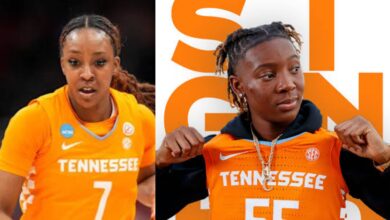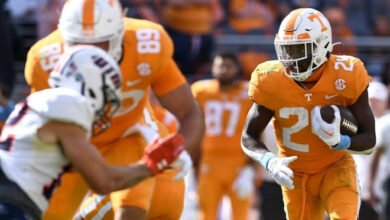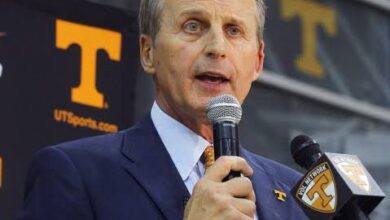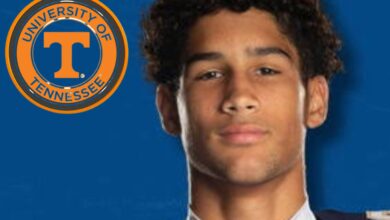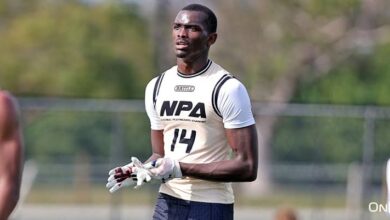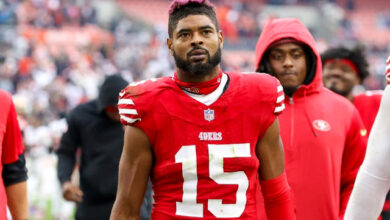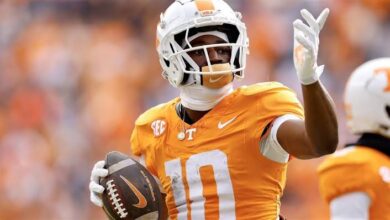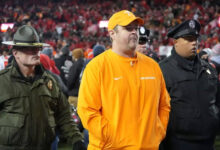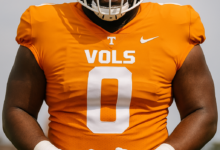NFL Legend Peyton Manning Passes Away at 49: The Football World Mourns a Giant
NFL Legend Peyton Manning Passes Away at 49: The Football World Mourns a Giant
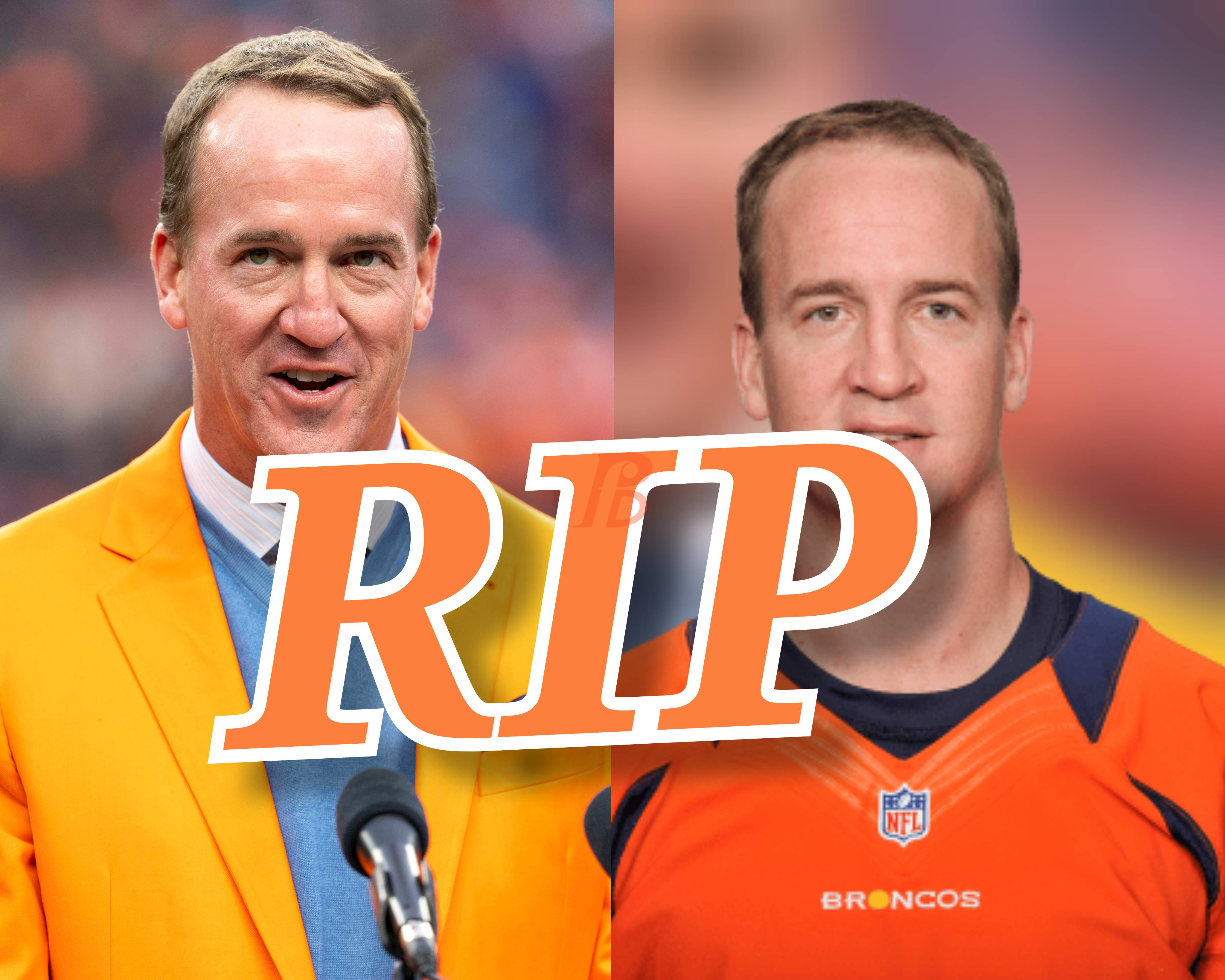
NFL Legend Peyton Manning Passes Away at 49: The Football World Mourns a Giant
April 30, 2025 — A Heartbreaking Day in American Football History
Introduction: A Stunning Loss for the Football Community
In a somber moment that has shaken the entire sports world, Peyton Manning — NFL legend, two-time Super Bowl champion, five-time MVP, and one of the greatest quarterbacks in the history of American football — has passed away at the age of 49. His death was confirmed early Wednesday morning by the Manning family, sending shockwaves through fans, former teammates, coaches, and rivals across the country.
The cause of death has not been publicly disclosed at this time. In a brief statement, the Manning family asked for privacy while expressing gratitude for the outpouring of love and support.
Early Life and Family Legacy: Born to Be a Quarterback
Born on March 24, 1976, in New Orleans, Louisiana, Peyton Williams Manning was the son of NFL quarterback Archie Manning and Olivia Manning. From a young age, it was clear that football ran in his blood. Raised alongside brothers Cooper and Eli — the latter of whom would also go on to win two Super Bowl titles — Peyton’s life seemed destined to unfold under stadium lights.
He starred at Isidore Newman School, quickly establishing himself as one of the most promising quarterback prospects in the country, attracting national attention with his sharp football IQ and uncanny poise.
College Stardom at Tennessee: A Volunteer Legend
Despite speculation that he would follow in his father’s footsteps at Ole Miss, Manning chose the University of Tennessee, where he became a legend. Over four years, he rewrote the record books, threw for 11,201 yards and 89 touchdowns, and led the Volunteers to an SEC Championship in 1997. Though a national title eluded him, his legacy in Knoxville remains unparalleled.
Off the field, his commitment to academics and leadership made him one of the most admired collegiate athletes of his time.
NFL Debut and Early Struggles: Laying the Foundation
Manning was selected as the No. 1 overall pick in the 1998 NFL Draft by the Indianapolis Colts. His rookie season was turbulent — he led the league in interceptions with 28 — but it became immediately clear that Indianapolis had found its franchise quarterback.
In the years that followed, he would become synonymous with the Colts, transforming the team into perennial contenders. His film-room dedication, pre-snap mastery, and signature “Omaha” audibles became part of NFL folklore.
Dominating the 2000s: The Golden Era with the Colts
From 2000 to 2010, Manning was the face of the NFL. Under his leadership, the Colts made the playoffs nine times in ten seasons. In 2006, he delivered a long-awaited Super Bowl title to Indianapolis, defeating the Chicago Bears in Super Bowl XLI and earning Super Bowl MVP honors.
His rivalry with Tom Brady became the defining narrative of the decade, pitting two of the greatest football minds against each other in classic AFC showdowns. Despite falling short in some key matchups, Manning’s performances were often masterclasses in quarterback play.
Comeback with the Broncos: Defying the Odds
After a series of neck surgeries threatened his career, the Colts released Manning in 2012. Many questioned whether he would ever play again. He responded by signing with the Denver Broncos and engineering one of the greatest career comebacks in sports history.
In Denver, he returned to MVP form, setting the single-season touchdown record (55) in 2013 and leading the Broncos to two Super Bowl appearances. In 2016, he retired after winning his second Super Bowl in a victory over the Carolina Panthers — a storybook ending to an unmatched career.
Retirement Years: A Life Beyond the Gridiron
Following retirement, Manning remained deeply connected to football. He hosted ESPN’s “Peyton’s Places,” an award-winning docuseries exploring the history of the NFL, and became a beloved broadcaster alongside his brother Eli on “Monday Night Football with Peyton and Eli.”
He was also frequently mentioned as a future NFL executive or coach, though he never formally returned to the sidelines. Instead, he focused on philanthropy, launching several educational and health initiatives through the PeyBack Foundation.
Tributes Pour In: An Outpouring of Grief and Gratitude
News of Manning’s death triggered a flood of tributes from across the sports world:
Tom Brady, longtime rival and friend: “Peyton was the ultimate competitor and an even better man. I respected him more than anyone I ever played against. The game won’t be the same without him.”
Tony Dungy, former Colts head coach: “He wasn’t just the smartest player I ever coached — he was the most prepared human being I ever met. He changed my life.”
NFL Commissioner Roger Goodell released a statement, calling Manning “an irreplaceable icon whose impact went beyond the field. He exemplified excellence, humility, and passion.”
From Lucas Oil Stadium to the Tennessee campus to high schools across America, fans gathered for impromptu vigils. Landmarks were lit in blue and orange, and social media flooded with messages of grief, admiration, and memories.
The Man Behind the Helmet: Humor, Humility, and Humanity
Beyond football, Peyton Manning was known for his quick wit, memorable commercials, and approachable demeanor. Whether spoofing himself on “Saturday Night Live” or volunteering at children’s hospitals, he brought humanity to a sport often marked by its intensity.
Friends and family described him as a devoted husband to Ashley and a loving father to their twins, Marshall and Mosley. His private life, kept largely out of the public eye, was centered on values instilled by his parents — humility, discipline, and service.
A Lasting Legacy: From Canton to the Classroom
Manning was inducted into the Pro Football Hall of Fame in 2021 — his first year of eligibility — in a speech that was as cerebral as it was heartfelt. But his legacy isn’t just preserved in busts or trophies.
Young quarterbacks across generations cite him as inspiration. His innovations in the no-huddle offense changed the very structure of how football is played. Coaches study his approach like scripture. And his foundation’s scholarships and hospital donations continue to impact lives far from the field.
Funeral Arrangements and Memorial Services
The Manning family has announced a public memorial to be held at Lucas Oil Stadium in Indianapolis next week, where fans will be invited to pay their respects. A private funeral will follow in New Orleans.
The NFL has confirmed that all games in Week 1 of the upcoming season will include a moment of silence in his honor. The Colts and Broncos are reportedly collaborating on a commemorative event to celebrate his dual legacy.
Conclusion: A Titan Has Fallen, But His Spirit Endures
Peyton Manning’s death marks the end of an era, not just in football, but in American culture. He wasn’t simply a quarterback — he was a symbol of excellence, resilience, and integrity. In victory and defeat, in health and injury, in youth and legacy, Manning exemplified everything we hope for in a sports hero.
As the football world bows its head in mourning, one thing is certain: there will never be another Peyton Manning. His story will echo in stadiums and hearts for generations to come.

